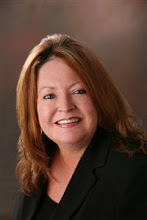Small banks start feeling financial stress
By Charles Piller cpiller@sacbee.com
http://www.sacbee.com/topstories/story/2000836.html
At first, the Sacramento region's small, business-oriented community banks appeared to have sidestepped the plight of banking titans that staggered under the burden of home mortgage defaults. Now some are showing signs of stress.
Gold Country Bank in Marysville has become the weakest bank of its size in California – below 98 percent of similar banks nationwide, according to Bankrate.com, a leading independent evaluator. It took the place of MetroPacific on June 26, when that Irvine Bank was seized by regulators.
Granite Community Bank in Granite Bay has similar problems, according to data from analysts and the Federal Deposit Insurance Corp.
Nationally, one in five banks lost money in the first quarter of this year. But among this region's 15 small community banks, two of every five lost money, including Gold Country and Granite Community.
Those and many other small banks rely more heavily on a combination of construction, industrial and commercial real estate loans than on home mortgages and securities. Initially, most coped with the economic collapse.
Not long after the residential mortgage meltdown, construction lending followed the same downward slope. Experts believe commercial mortgages and industrial loans – sensitive to high unemployment and low consumer confidence – are following a similar path.
The impact on banks holding many of those loans could be dire. When banks fail, federal insurance protects deposits up to $250,000 in most cases, but not shareholders' investments. Local businesses reliant on community banks for credit also could suffer.
Representatives of Gold Country and Granite Community said that despite the challenging economy, they are prepared for any eventuality.
"Everyone in this region is experiencing the same things," including falling demand for loans and sharply declining property values, said David R. Kaiser, president of Granite Community. "I don't think I have any more concerns than my counterparts."
But commercial real estate loans – on which many local banks deeply depend – were recently described by Rep. Carolyn Maloney, D-N.Y., chairwoman of the congressional Joint Economic Committee, as "a ticking time bomb" for massive default problems later this year.
Local challenges
In Yuba County, home of Gold Country Bank, the process already is unfolding.
"There's a ton of empty commercial space; somebody has got to be making payments on those," said Steve Brammer, chief operating officer of the Yuba-Sutter Economic Development Corp., a public lending agency. "It's hard to do that without tenants."
Lease rates for prime commercial space in Yuba County recently have fallen as much as 40 percent, Brammer said.
"We are starting to see some commercial loans going south," said Brent Bosanek, owner of the Coldwell Banker Commercial property brokerage in Yuba City, and a former area commercial banker.
"For commercial lending, it's all about the cash flow," which declines as leases are renegotiated downward, he said. Lenders from outside the region have contacted his firm to appraise commercial properties, anticipating steep declines in value.
Bosanek added: "Banks are worried."
Tarra Victorino, Gold Country's chief financial officer, said the commercial property threat was on her bank's radar, but that she was "not comfortable" quantifying the possible impact on its business.
"All banks are concerned if the commercial real estate sector suffers the problems that are predicted," she said.
Several local banks also had far higher rates of commercial and industrial lending than similar banks. Such loans often go bad quickly in a recession, said Foresight Analytics partner Matthew Anderson. "They are even riskier than real estate lending."
Like some of the other banks, Gold Country also has relatively high levels of restructured loans. This means terms have been changed before the loan comes due.
Troubled banks tend to use the practice, which is legal, to avoid designating loans as delinquent or to forestall foreclosures – delaying bad news from reaching their balance sheets.
Subscribe to:
Post Comments (Atom)

No comments:
Post a Comment